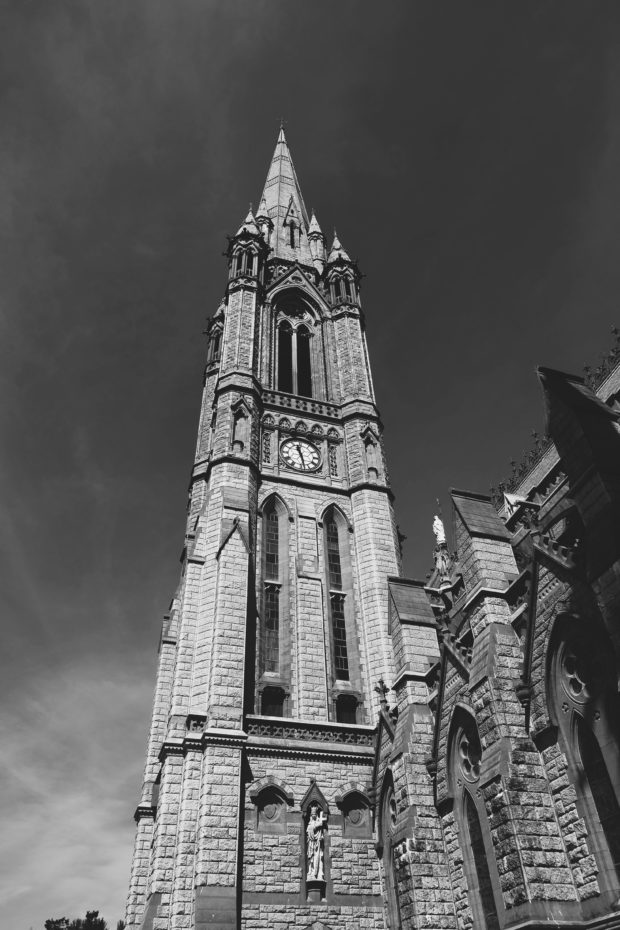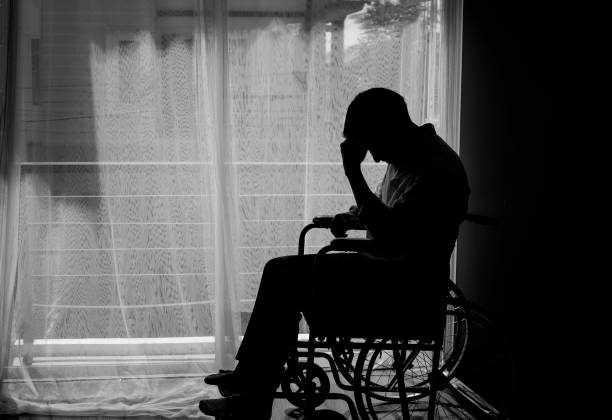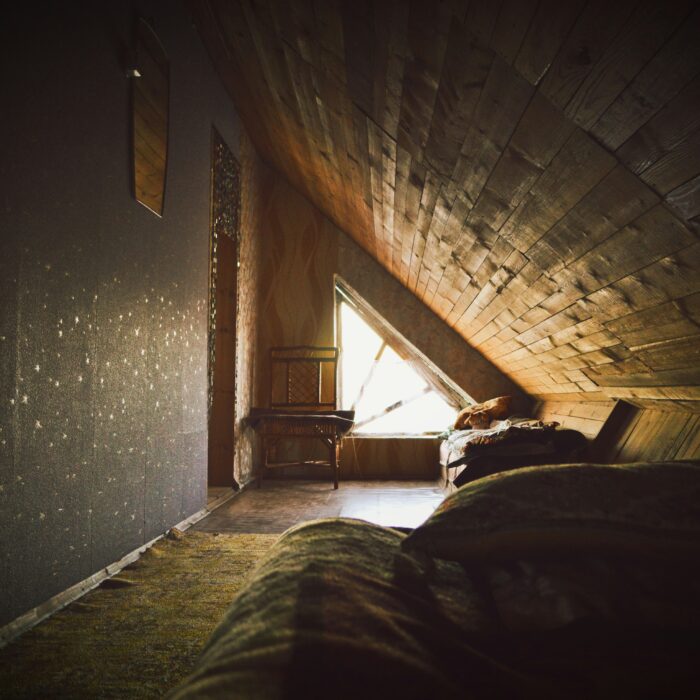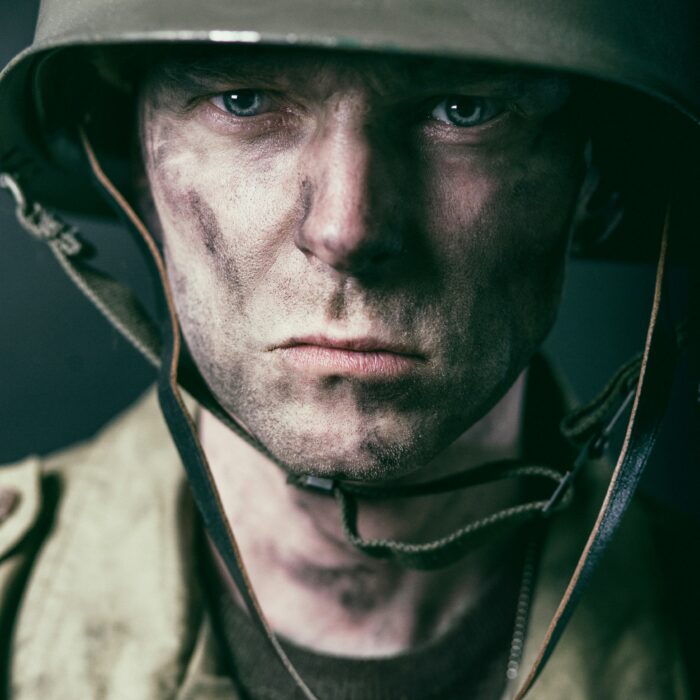You have no items in your cart. Want to get some nice things?
Go shopping
“Thou art my beloved Son; with thee I am well pleased.”
Even Jesus craved his Father’s approval, never mind that meeting expectations required getting nailed to a cross.
Shifting nervously in church with the other thirteen-year-olds, awaiting the white-mitered bishop’s confirmation slap, I’d been contemplating that Son’s fate. I’m Liam. Ann, the Dingle girl I pretended to ignore, told me my curly red hair and blue eyes were deadly.
St. Mary’s Church wasn’t a humble expression of faith, but a Gothic-style cavernous space of marble, stone, and stained glass, an example of the nineteenth-century construction boom of opulent cathedrals that followed Britain’s emancipation of Catholicism in Ireland. Those were the days when ninety-five percent of the country attended Sunday mass, when divorce, abortion, and gay marriage were illegal. Before we learned that priests had illegitimate children or sodomized boys, that aborted baby’s remains were buried in convent courtyards, and nuns smuggled newborns into the United States. Naïve? Perhaps. We also feared the local priest’s rebuke that he hadn’t seen us in church on Sunday.
On the stone steps outside St. Mary’s, my father clapped me on the shoulder pronouncing I’d become a man. His expectations had risen, no details provided. His praise was rare, hardly effusive, and I shuddered at the prospect of disappointing him.
Tall, straight as a Blackthorn stick, my father’s premature baldness left him with a half-moon shaped tuft of brown hair above his ears. Fearing toxic miasmas entering through his bare pate, he wore a toupee purchased from London. Mornings he’d fetch the hairpiece from a cardboard box and methodically affix double-sided adhesive tape around the perimeter before carefully measuring four fingers above his eyebrow line and securing it on his head.
My mother teased that the wig resembled a thatched roof.
My parents were wool merchants in town. During any protracted price negotiation with a supplier, my father disconcerted his rival by removing his toupee, placing the hair over his knee, and meticulously combing it. Fidgeting at the display, adversaries stuttered their way to quick agreement.
The other times he’d temporarily go hairless were if Ireland’s President Éamon de Valera appeared on TV. He’d rip off the mat and throw it like a chunk of peat at the screen swearing, “Saint Patrick supposedly rid Ireland of snakes. Another lie.”
My father would blame de Valera even for the weather.
Once de Valera came to our school, and I shook his hand. When he heard, my father threatened to lop off my wrist while my mother blessed the appendage. She considered de Valera’s professorial demeanor as lofty, while my father swore that he orchestrated the assassination of revolutionary hero Michael Collins. Shaking hands placed me with my mother in de Valera’s camp, a demerit in my father’s ledger.
The Killarney Fishing Club’s annual spring brown trout contest on Lough Leane, Gaelic for the “lake of learning,” had two-man teams competing for a thirty-centimeter tall gold plastic cup with “made in China” inscribed on the underside. Days before the event, I’d fall asleep fantasizing that I’d be handed the trophy by the fishing club president. Mr. Moriarty’s belly bulged like a bicycle pump had been shoved up his bum and he’d been blown up a bit. In judging the weight of each contestant’s catch, he’d peer through horn-rim glasses squinting at the tick marks on the scale.
In a sky-blue rowboat, my father and I set out on the lake surrounded by towering gray-green peaty slopes that yielded to my boots like a lumpy bed. Silver rivulets streaked down the mountain, and low, cotton-candy clouds opened windows of sunlight that danced across the hillside like Hollywood spotlights. Rock walls and wire fences enclosed white, shaggy black-face sheep that would Baa and flee my approach revealing the filthiest bums on the planet. As we rowed, we glimpsed the broken stone tower of a Dark Age ruin and yellow reeds that crawled to the water’s azure-green edge.
We’d fly fished for a few hours with modest success. Kept trout had to be twenty-five centimeters minimum. The horn blare that would signal the contest’s last cast was about to sound when a giant brown, at least half a kilo, broke the water’s surface just meters from our boat. A large enough fish to take first place, my father frantically reeled in ten meters of line so he could attempt to land the beast. Sitting on his left, I’d been at the helm keeping the boat pointed into the wind. My pole’s rig consisted of three jolly cock flies tied on a long leader. Fearing we’d lose the chance, he shouted for me to make a cast at the monster. At his direction, my adrenaline surged. I whipped my rod twice and cast the line. To my horror, the third fly’s hook snagged my father’s toupee and whisked the thatch off his head as easily as a magician removes a tablecloth. The hair flew out to sea like it had sprouted wings and landed in the lake with a plop. My eyes widened in shock and my stomach sank like an anchor.
Aghast, my father yelled, “Don’t move.”
Fortunately, the hairpiece floated on the surface like a tiny man-made island. My father dropped his rod into the boat and grabbed an oar, extending the flat side toward the hair, stretching over the side, rolling the boat to the point that I thought we’d capsize, but the prize remained out of reach.
“Row,” he commanded.
With the other oar, I began a chaotic paddle, splashing water onto both of us in a frenzied attempt to move the boat closer to the objective, praying the forward wake of the craft wouldn’t swamp the hair. Hope competed with angst. In my head, a movie played of my father retrieving the drenched wig, nursing it back to dryness, with the only consequence an admonition that I be more careful.
The hairpiece bobbed precariously in the water.
“Give me the net,” he said.
I jumped to comply.
He sank the fishing net intending to snare the toupee out of the water with an upward sweep, but at the cusp of victory a dark force sucked the mat down into the ink green depths.
My father’s gasp was audible.
I felt like I’d contracted a fatal disease. My life was over.
In my desperation, I thought to make a pearl-diver’s plunge to the bottom of the lake and if unsuccessful, drown myself, but my swimming skills weren’t up for the task and I crumpled into a corner of the boat, a darkness enveloping my brain.
Without a word, red faced, breathing hard after his effort, my father sat. Finally, he let out a long sigh, and retrieved a large handkerchief from his pocket, twirled and knotted the four corners, and placed it on his head.
Still without speaking, he motioned, and we each took an oar and rowed to the dock.
When we stepped ashore, a knot of fishermen spotted my father and burst into laughter.
His face turned crimson.
Gleefully, Mr. Moriarty asked him, “What happened to your hair?”
“Chum,” my father said.
Moriarty was chuckling as we left.
When we entered our house, my mother stifled a giggle. He waved off her unasked question and retired for a bath.
My face undoubtedly revealed the weight dragging down my spirit, which even her hug couldn’t dispel.
My father didn’t mention the incident, however during the next days, even his slightest sniffle produced a hard stare in my direction. Without his helmet of protection, disease would claim him, and I’d be at fault.
Sent by my mother to fetch him from the Crane Pub, I walked in, just as one of his wool merchant rivals slapped my father’s mangled hairpiece down on the mahogany bar. “If I’d caught this Saturday,” he roared, “I would’ve taken the cup.”
The men at the bar howled, and I slipped away. He arrived home just after me, grim faced.
One evening, de Valera appeared on TV. My father instinctively grabbed for his toupee but came up with air. Not the poet, he turned to gaze at me more in anger than in sadness.
Time for me to confront the issue. I stood and said, “Éamon de Valera is a gobshite.”
My mother’s face indicated she understood.
My father sat back, and his eyes narrowed with suspicion. He nodded to himself.
The next morning, we three sat at breakfast. My appetite had suffered since the incident and my porridge was turning cold.
My mother and father’s eyes met before he spoke in a nonchalant tone. “I’ve ordered another hairpiece from London. Should arrive next week.”
My mother glanced at me before saying, “That’s good.”
My eyes lowered to the bowl of porridge.
My father turned to me. “Even so, the next time we go fishing, I’ll wear a hat.”
He chuckled and clapped me on the shoulder.
I let out my first breath without angst since the fishing contest. I reconsidered my porridge and remembered I was hungry.

Joe Giordano
Joe Giordano was born in Brooklyn. He and his wife Jane now live in Texas. Joe’s stories have appeared in more than one hundred magazines including The Saturday Evening Post, and Shenandoah. His novels, Birds of Passage, An Italian Immigrant Coming of Age Story (2015), and Appointment with ISIL, an Anthony Provati Thriller (2017) were published by Harvard Square Editions. Rogue Phoenix Press published Drone Strike in 2019 and will publish his short story collection, Stories and Places I Remember, in 2020. Joe was among one hundred Italian American authors honored by Barnes & Noble to march in Manhattan’s 2017 Columbus Day Parade. Read the first chapter of Joe's novels and sign up for his blog at https://joe-giordano.com/
- Web |
- More Posts(1)




